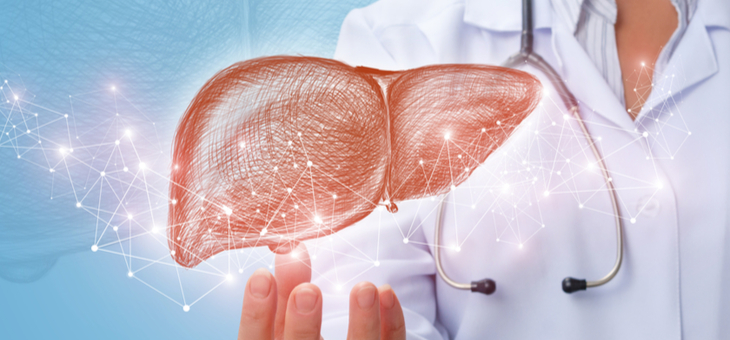When we think of liver damage, more often than not we relate it to levels of alcohol consumption. There are, however, other ways you can damage your liver. But the good news is that you can make it healthy again.
The liver is our largest organ and regulates our metabolism, processes nutrients and removes toxins. There are a number of disorders that can damage the liver. These include fatty liver, hepatitis, haemochromatosis, cirrhosis, Wilson’s disease, galactosaemia and autoimmune liver disorders.
Lifestyle factors, such as diet, can lead to liver disease. In fact, some research suggests that sugar can be as harmful to the liver as alcohol, even for people within a healthy weight range.
Fatty liver – an alcohol-induced disorder – occurs when fat accumulates inside liver cells, causing enlargement and damage. Non-alcoholic fatty liver disease has similar symptoms, but is linked to other factors, including obesity, heart disease and insulin resistance, and may lead to cirrhosis. Cirrhosis is scarring of liver tissue and involves the formation of liver nodules. It can result in the decline in liver function and even liver failure.
Luckily, under the right circumstances, your liver has the ability to regenerate.
One of the simplest things to ensure your body is a liver-friendly environment is to be a healthy weight. Research shows that people who are able to lose weight show improvement in liver fibrosis – the early stages of liver scarring.
Cut down on drinking alcohol. More than one glass a day for women or more than two for men can put your liver at risk. Limiting the amount you drink, or the frequency with which you drink, can give your liver time to recover.
An improvement in diet is important for anyone concerned about their liver health, not just those carrying a few extra pounds. A diet that includes a high consumption of sugars, trans-fat and processed foods, common in a Western diet, can cause liver damage. Fat can accumulate in, and damage, the liver before it shows on other parts of the body. Check out love your liver – eat these foods and best and worst foods for your liver for more information on what kind of diet you should prioritise to help your liver recover.
Vitamin E has been shown to significantly improve liver function in people with non-alcoholic fatty liver disease. Before you run to the shop to get some, however, you should know that it is also linked to blood clots, and this can be far more dangerous. If you do intend to investigate vitamin E, it’s worth raising it with your doctor to ensure that your blood vessels and family history are compatible with the supplement.
Exercising helps to remove fat stored in the liver. It’s one of the most effective things you can do to take strain off your liver. Just 20 minutes of exercise three times a week is enough to make a difference.
However, once your liver is too scarred, it won’t be able to regenerate itself, so it’s important to make these lifestyle changes before you develop any serious concerns.
Are you mindful of the health of your liver? Have you had to make lifestyle changes?
If you enjoy our content, don’t keep it to yourself. Share our free eNews with your friends and encourage them to sign up.
Related articles:
Signs of fatty liver disease
How to keep your liver happy
Best and worst foods for your liver
Health disclaimer: This article contains general information about health issues and is not advice. For health advice, consult your medical practitioner.

